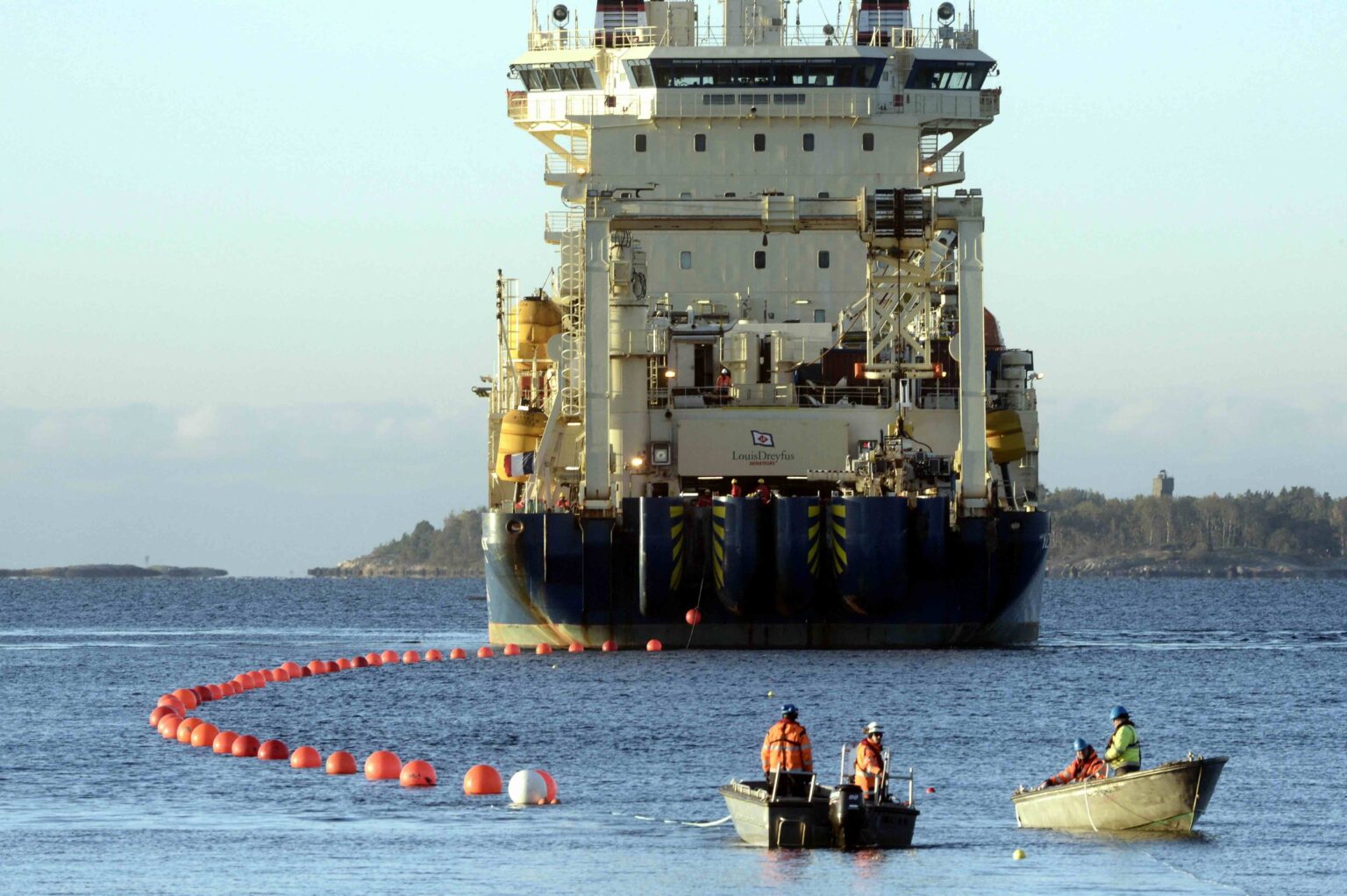The C-Lion1 telecommunications cable is laid in the Baltic Sea by cable ship Ile de Brehat on the shore of Helsinki, Finland, on October 12, 2015. REUTERS
REUTERS
European governments have accused Russia of escalating hybrid attacks on Ukraine’s Western allies as Baltic nations investigated whether the cutting of two fiber-optic telecommunication cables in the Baltic Sea in mid-November 2024 was sabotage. “Moscow’s escalating hybrid activities against NATO and EU countries are also unprecedented in their variety and scale, creating significant security risks,” the statement signed by the foreign ministers of Britain, France, Germany, Italy and Poland said. Europe needs to “think and act big” to boost its security, the statement continued.
The strongly worded declaration came as European countries probed the complete severing of the Baltic cables, one linking Finland and Germany, the other connecting Lithuania to Sweden, recalling previous incidents in the busy waterway. Two European sources said the statement was not a direct response to the cable cuts.
European Commission Vice President Josep Borrell struck a more cautious tone, saying it was too early to point fingers.“It would be irresponsible from my side to attribute this, let’s say incident or accident or whatever you want to call it, to anyone,” he said at a news conference in Brussels.
Swedish police launched a sabotage investigation into the cables’ severing, they said in a statement November 19, 2024. Swedish Armed Forces and Coast Guard picked up ship movements that correspond with the interruption of the cables, Swedish Minister for Civil Defense Carl-Oskar Bohlin told broadcaster TV4.
Regional NATO members are jointly assessing events surrounding the latest cable cuts, a spokesperson for the Lithuanian Armed Forces said. Finland’s National Bureau of Investigation said it also had launched investigations into the broken subsea cable. One cable went out of service November 17, 2024, the other less than 24 hours later.
European officials have not directly accused Russia of destroying the cables. But Germany, Poland and others said it was likely an act of sabotage, while Lithuania’s Armed Forces boosted surveillance of its waters in response.
“If Russia does not stop committing acts of sabotage in Europe, Warsaw will close the rest of its consulates in Poland,” Polish Foreign Minister Radoslaw Sikorski said November 19, 2024, after several European foreign ministers met in the Polish capital. Speaking at the same event, German Foreign Minister Annalena Baerbock cited the incident and other recent events when speaking about what she called “hybrid intimidation attempts” by the Kremlin, adding “these can’t all be coincidences.”
German Defense Minister Boris Pistorius struck the same chord as he met with EU colleagues in Brussels: “No one believes that these cables were cut accidentally.” He added: “We also have to assume, without knowing it yet, that it is sabotage.”
Russia has repeatedly denied sabotaging European infrastructure and says that the claims are made up to damage Russian interests as part of an information war waged by the West. Russian officials also say that they note the investigation into the Nord Stream gas pipeline blasts in 2022 has produced no results.
In the most prominent Baltic sabotage case, the Nord Stream gas pipeline was destroyed in September 2022, seven months after Russia launched its full-scale invasion of Ukraine, hastening Europe’s switch to other energy suppliers. No one has taken responsibility for those blasts. While some Western officials initially blamed Moscow — an interpretation dismissed as “idiotic” by Russian President Vladimir Putin — U.S. and German media have reported that pro-Ukrainian actors may have played a role.
The companies that own the two cables both said it was not yet clear what had caused the outages. “It’s not a partial damage, it’s full damage,” said a spokesperson for Arelion, owner and operator of the cable linking Lithuania and Sweden. The company later said it had filed a police report.
Cinia, owner of the cable linking Finland and Germany, said it was not possible to say what might have caused the breach until repairs had started. The company has said repairs of this nature typically take five to 15 days.
Dutch Defense Minister Ruben Brekelmans said he had no specific information about who was to blame. However, he said: “We see increasing activity of especially Russia on our seas, aimed at espionage and possibly even sabotage of our vital infrastructure.”

